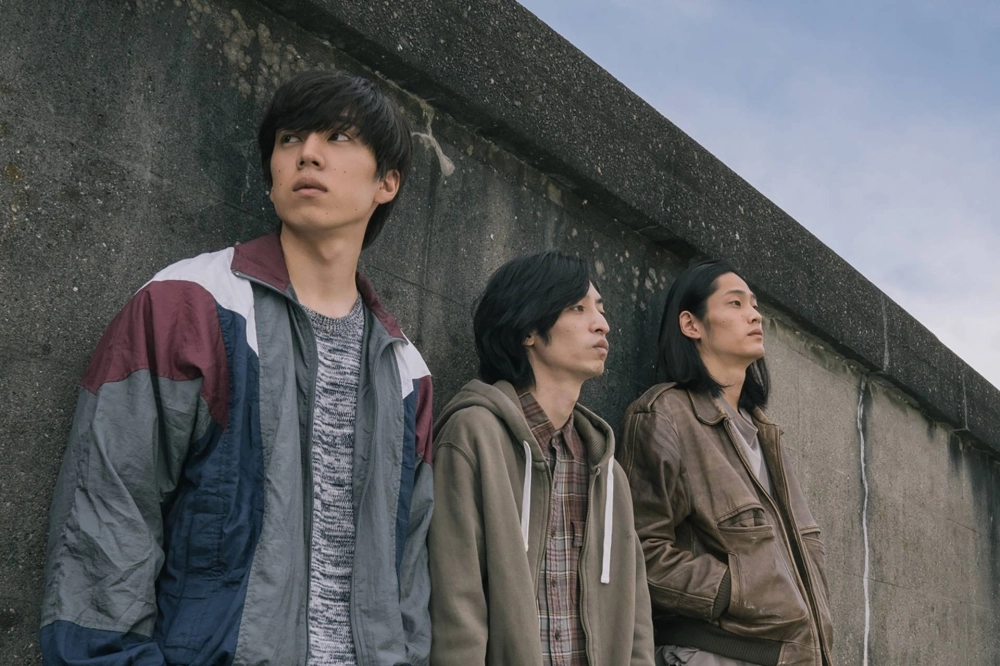In a country where the median age of the population is nearly 50, youth is a relative concept.
The lead actors in Ryutaro Ninomiya’s “Wakamusha” — the title of which translates as “young warrior” — are all in their late 20s, yet the characters they play act like they’ve only just reached the age of majority. A trio of childhood friends bound together more by force of habit than affection, they work in low-paid jobs and spend their downtime traipsing around like overgrown delinquents, craving something that might take the edge off the boredom.
For the voluble, long-haired Eiji (Rion Takahashi), this hunger for stimulation is directed outward — whether at his sullen pal Wataru (Ryota Bando) or at strangers. In an early scene, he confronts an older, tougher man (played by former pro wrestler Yukio Sakaguchi) for smoking in a public place. Later, he accosts a pair of young women who titter at seeing him stage a kiss — tongues and all — with his male accomplice, Mitsunori (Naoya Shimizu).

















With your current subscription plan you can comment on stories. However, before writing your first comment, please create a display name in the Profile section of your subscriber account page.